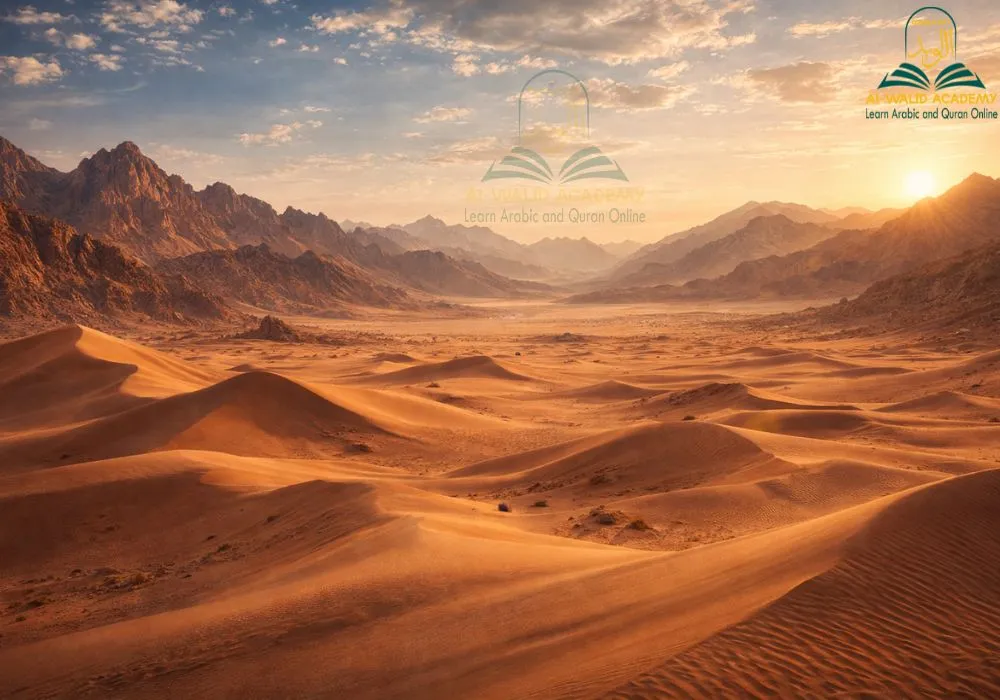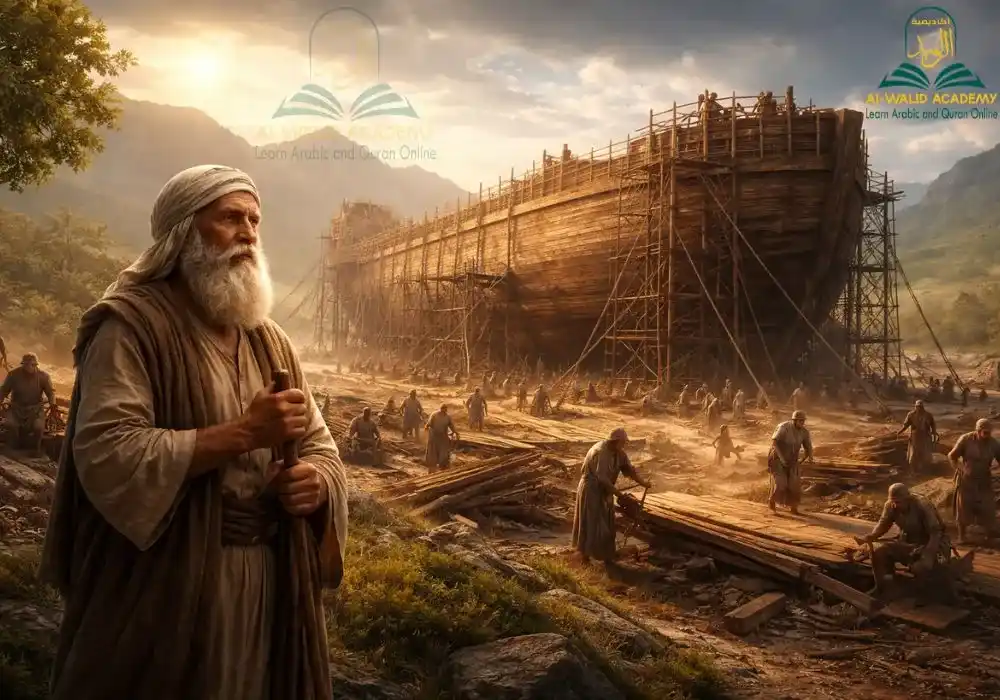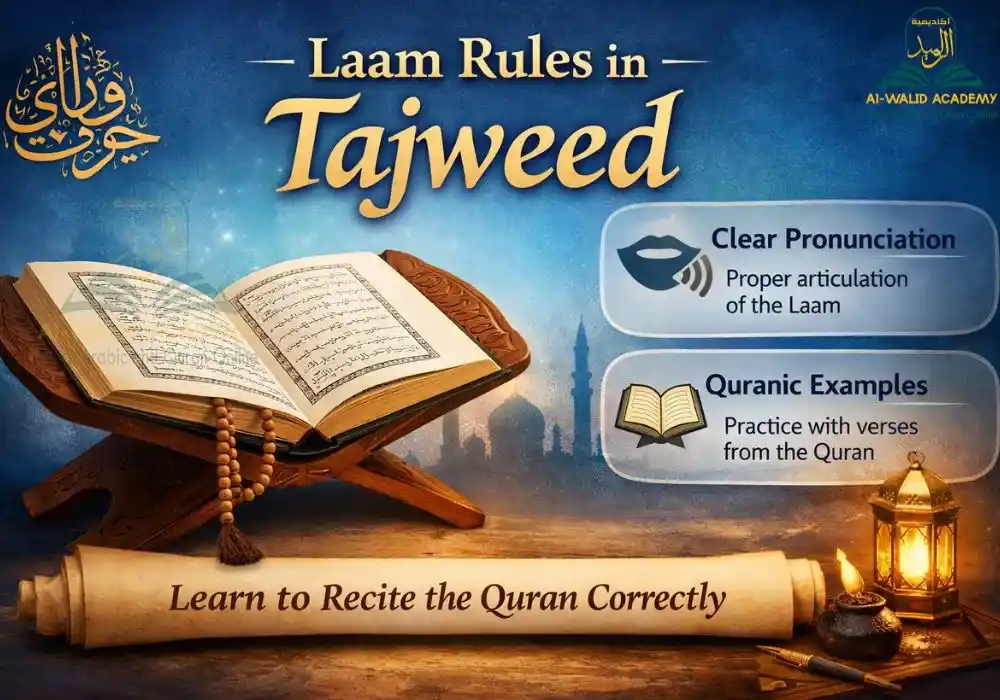The question Who wrote the first Quran? is one that often comes up, whether from Muslims or non-Muslims.
Many people seek to know: who wrote the first manuscript of the Quran? And has the Quran ever changed over time, or has it remained preserved exactly as it was? This issue is not just a matter of history, but it is directly tied to faith and belief.
Who Wrote the First Quran?
A question like “Who wrote the first Quran?” is often asked by both Muslims and non-Muslims.
Many people want to know: how was the first manuscript written? And has the Quran ever been altered over time, or has it remained exactly as it was revealed?
The truth is, this isn’t just a historical inquiry—it’s closely tied to faith and belief.
Muslims believe that the Quran is the pure word of God, not the words of men, and that it has been preserved exactly as it was revealed to Prophet Muhammad, without addition or loss.
The Quran wasn’t compiled like ordinary books authored by people. It was divine revelation sent down to the Prophet and memorized by his companions before it was recorded on written materials.
That’s why this question continues to spark curiosity to this day, Many companions joined what we’d now call a Quran Memorization Course, dedicating their lives to preserving every verse by heart.
Why this question matters today
In today’s world, with the vast spread of the internet, anyone can publish misinformation about Islam and the Quran. This often causes confusion between truth and false claims.
Some articles and videos suggest that the Quran was changed or that its authorship is uncertain, which makes it important to clarify the facts.
That’s why it’s essential to explain:
- What is the origin of the Quran?
- How was it revealed?
- And how was it preserved and recorded without alteration?
This knowledge not only strengthens a Muslim’s trust in their holy book but also gives non-Muslims the chance to see how unique the Quran is—preserved in a way that no other divine scripture has been.
Revelation of the Quran
The story of how the Quran was revealed is one of the most fascinating parts of Islamic history.
It’s not just about dates or events, but it also shows why the Quran is unique compared to any other book in the world.
Just like today’s Quran Classes For Adults, the companions learned directly from the Prophet, repeating and perfecting each word.
How old is the Quran?
The Quran is more than 1,400 years old. It was revealed in the 7th century AD, mainly in Makkah and Madinah in the Arabian Peninsula.
Since then, the Quran has remained unchanged, word for word, which Muslims believe is proof that God Himself promised to preserve it.
When and how the Quran was revealed
The Quran was not revealed all at once. It came down gradually over 23 years. Each revelation was connected to different situations:
- Sometimes to teach Muslims new lessons.
- Sometimes to establish laws and rulings.
- Sometimes as answers to questions or reactions to events happening at the time.
The angel Jibreel (Gabriel) was the one who brought the revelation from God to Prophet Muhammad.
The Prophet’s companions were the first to engage in an online Quran Recitation Course–style learning, but instead of screens, they relied on direct oral transmission.
Prophet Muhammad’s role as messenger, not writer
Prophet Muhammad did not write the Quran himself. In fact, he was unlettered and could not read or write, which makes it clear that the words of the Quran were not his own.
His role was simply to deliver God’s message exactly as it was revealed, without adding or changing anything.
The Prophet’s companions wrote down the verses immediately after hearing them, and many also memorized them, ensuring the Quran was preserved both in writing and in the hearts of believers.
Recording the Quran During the Prophet’s Life
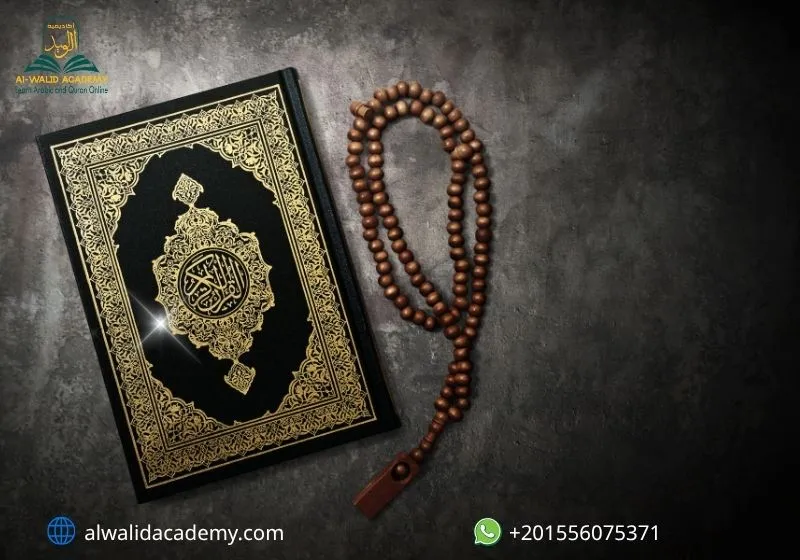
This part of history is very important because many people wonder: how was the Quran preserved during the lifetime of Prophet Muhammad? Was it only memorized, or was it written as well?
From the very beginning, the Quran was safeguarded in two main ways: through memorization and through writing on simple materials.
-
Oral Memorization (Hifz) Among Companions
The Quran was first preserved in people’s hearts. The companions of the Prophet would listen to the verses directly from him and immediately memorize them.
Many of them memorized the entire Quran by heart, becoming living protectors of the divine message.
This wide network of memorizers made it impossible for any mistake or alteration to pass unnoticed.
-
Early Written Fragments on Parchments, Stones, and Leaves
Along with memorization, the Quran was also written down. Even though the writing tools at that time were simple, the companions were keen to record the revelations. They used materials such as:
- Parchment and leather.
- Palm leaves.
- Smooth stones.
- Wooden boards.
This means that every revelation was preserved in multiple forms, ensuring that no verse could ever be lost.
Role of Scribes in Preserving Verses
The Prophet himself appointed scribes to record the revelations as soon as they were revealed. One of the most notable scribes was Zayd ibn Thabit رضي الله عنه.
The Prophet would dictate each verse and specify its exact place in the surah.
This shows that the process was not random or personal effort—it was directly supervised by the Prophet. The same arrangement of verses recorded then is what we have in the Quran today.
Through this combined method—memorization by hundreds of companions and written recording under the Prophet’s guidance—the Quran was fully preserved during his lifetime without loss or change.
The First Compilation of the Quran Under Abu Bakr
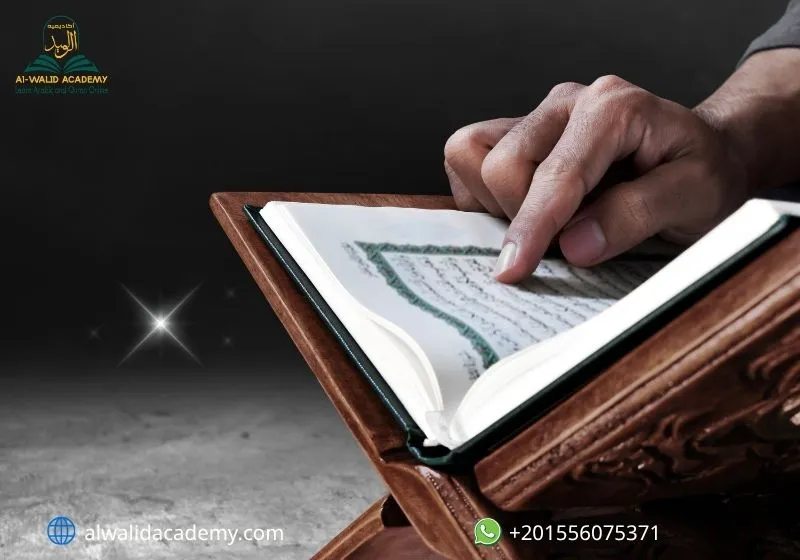
After the Prophet passed away, Muslims faced major battles such as the Wars of Apostasy.
One of the most dangerous moments was the Battle of Yamama, where many companions who had memorized large portions of the Quran were martyred.
This raised a serious concern among the companions: what if more memorizers were lost in the future? From this point, the idea of compiling the Quran into one complete manuscript became urgent.
The Battle of Yamama and the Fear of Losing the Quran
The Battle of Yamama was a turning point. A large number of Qurra’ (reciters who memorized the Quran) were killed.
Umar ibn al-Khattab رضي الله عنه realized the risk: if more memorizers died in future battles, parts of the Quran might be forgotten.
So he went to Abu Bakr al-Siddiq رضي الله عنه and advised him to collect the Quran into one unified book.
The Role of Zayd ibn Thabit in Compilation
Abu Bakr accepted the idea and appointed Zayd ibn Thabit رضي الله عنه to lead this sacred mission.
Zayd was not just any companion—he had been one of the Prophet’s scribes of revelation, known for his trustworthiness, accuracy, and strong memory. He was the perfect choice to oversee the collection process.
A Process of Careful Verification
The companions didn’t rely only on memory, nor only on written records. Their method was extremely precise:
- They gathered all the written fragments of the Quran—on parchments, palm leaves, and wooden boards.
- They compared these texts with what the companions had memorized.
- No verse was accepted unless it was confirmed by both written record and the testimony of reliable memorizers.
This strict process ensured that the compiled Quran was 100% accurate, without any addition or omission.
When Was the Quran Compiled After the Prophet’s Death?
The first complete manuscript of the Quran was finalized during Abu Bakr’s caliphate, within the first two years after the Prophet’s death (around 632–634 CE).
This became the earliest complete written copy of the Quran, safeguarded for the Muslim community.
This historic step laid the foundation for preserving the Quran, which was later continued during the caliphate of Uthman رضي الله عنه when the Quran was standardized into one official version for the entire Muslim world.
The Standardization of the Quran during the Caliphate of Uthman ibn Affan
After Islam spread across many lands, new Muslims began learning the Quran from the companions who were teaching them.
Because of the different tribal dialects and variations in pronunciation, differences in recitation started to appear.
This situation could have caused major disputes, so Caliph Uthman ibn Affan (may Allah be pleased with him) saw that the best solution was to prepare an official, unified copy of the Quran that everyone could follow without disagreement.
The reason for needing a unified copy
During battles such as the conquest of Armenia and Azerbaijan, Hudhayfah ibn al-Yaman (may Allah be pleased with him) noticed that Muslim soldiers from different regions were reciting the Quran in different ways.
Fearing that these differences could spread and cause division, he returned to Madinah and advised Uthman to unite the ummah on one official copy before the issue grew out of control.
The committee of scribes and their method
Uthman (may Allah be pleased with him) formed a special committee to compile and copy the Quran, headed by the companion Zayd ibn Thabit (may Allah be pleased with him), along with other companions known for their knowledge and precision.
The committee referred back to the manuscript that had been compiled earlier during Abu Bakr’s time, which was kept with Lady Hafsa bint Umar (may Allah be pleased with her).
They worked with extreme care to produce a final copy identical to the revealed text.
Distribution of the copies
When the copies were completed, Uthman (may Allah be pleased with him) distributed them to the main centers of the Muslim world at the time, such as:
- Kufa
- Basra
- Sham (Syria)
- Makkah
He also kept one copy in Madinah as the primary reference for Muslims.
Burning of other manuscripts
To prevent confusion with older manuscripts that had been written with variations, Uthman ordered that they be burned.
The purpose was not to hide anything, but to preserve the unity of the Quranic text, ensuring that Muslims everywhere recited the same Quran without differences.
This step was extremely important because it guaranteed that the Quran remained one unified and preserved book, exactly as it was revealed to the Prophet — a miracle unmatched by any other scripture in history.
Learn Quran, Arabic, and Islamic Studies with certified teachers in fun, interactive, and personalized sessions. Join thousands of students around the world and begin your path today!
Who Physically Wrote the First Official Quran?
The Quran is the word of Allah, revealed to Prophet Muhammad. But when it comes to the writing of the first official copy, the story is an important one, and the companions played a central role in making sure the Quran reached us exactly as it was revealed, without any changes.
-
Zayd ibn Thabit – The Main Scribe
Zayd ibn Thabit (RA) was the Prophet’s trusted scribe. Whenever a revelation came down, the Prophet would recite it, and Zayd would immediately write it down.
After the Prophet’s passing, when the Quran was compiled into one manuscript, Zayd was chosen to lead this great task.
-
Support from Other Companions
Although Zayd was the leader of the compilation, several senior companions supported him in reviewing and confirming every verse, including Ali ibn Abi Talib, Ubayy ibn Ka‘b, and Abdullah ibn Mas‘ud (RA).
Their involvement ensured that the text remained accurate and precise.
-
Hafsa’s Custody of the Manuscript
The first compiled manuscript, completed during the caliphate of Abu Bakr (RA), was entrusted to Hafsa bint Umar (RA), one of the Prophet’s wives.
Her copy remained preserved for years and later became the reference for the standardized Quran during the time of Caliph Uthman ibn Affan (RA).
Did the Quran Have Authors?
Some may wonder: who “authored” the Quran? From the Islamic perspective, the Quran has no human authors. It is solely the word of Allah.
The companions were not authors but faithful scribes and transmitters who preserved the revelation exactly as it was revealed to the Prophet.
This history highlights the dedication and honesty of the companions in preserving the Quran, ensuring that what we have today is the exact same text revealed over 1,400 years ago — a unique miracle compared to any other book in history.
The Earliest Surviving Quran Manuscripts
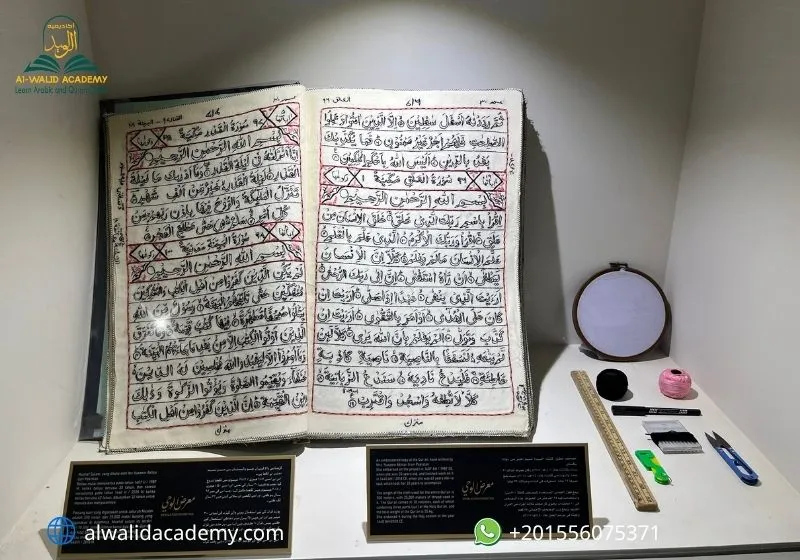
The Quran has been preserved not only in the hearts of Muslims but also in rare ancient manuscripts.
These historical texts serve as living evidence that Allah’s words have remained unchanged from the time of revelation until today.
-
The Birmingham Manuscript
At the University of Birmingham in the UK, researchers discovered old Quranic pages that underwent scientific testing, including radiocarbon dating.
The results showed that these fragments date back very close to the time of revelation in the 7th century.
This proves that the Quran we read today is the very same text recited over 1,400 years ago.
-
The Sana’a Manuscripts
In Yemen, inside the Great Mosque of Sana’a, a treasure of ancient Quranic manuscripts was found.
Studies confirmed that these manuscripts perfectly match the Quran Muslims recite today, demonstrating that the preservation has remained consistent without change.
The Role of Scientific Testing
Modern science has played a key role in confirming this authenticity. Radiocarbon analysis proved that these manuscripts date back to the earliest Islamic centuries, providing practical evidence that the Quran has been safeguarded from alteration or loss.
Has the Quran Ever Changed Over Time?
The clear answer is: no. The Quran has remained exactly as it was revealed for more than 14 centuries. Allah Himself promised: “Indeed, it is We who sent down the Reminder, and indeed, We will be its guardian.” (Quran 15:9).
This preservation was achieved in two ways: memorization by thousands and later millions of Muslims, and written manuscripts that safeguarded the text.
This makes the Quran truly unique compared to any other religious or historical book.
Scholars’ Views and Common Misconceptions About the Qur’an
The Qur’an is a divine book like no other. Over time, many questions and claims have been raised about its origin and history.
That’s why it’s important to distinguish between what Islam teaches about the Quran, what historians confirm, and the common misconceptions people often repeat.
Islamic Belief: The Qur’an Is God’s Word, Not Man-Made
Muslims believe the Qur’an is the word of Allah, revealed to Prophet Muhammad through divine revelation.
The Prophet did not write or author it; he only delivered the message exactly as he received it from the angel Jibreel.
The Companions of the Prophet played the role of preserving it—either by memorization or writing it down—without changing anything.
Historians and Researchers’ Perspective
Interestingly, even non-Muslim researchers confirm that the Qur’an was compiled very quickly after its revelation, which is rare compared to other religious texts.
Academic studies show that the transmission of the text was extremely accurate, making the Qur’an unique among scriptures, as it has remained unchanged from the very beginning until today.
Popular Misconceptions About the Qur’an
There are many false claims about the Qur’an, especially online. The most common ones include:
- That Prophet Muhammad authored the Qur’an. This is impossible since he was unlettered—unable to read or write—and the Qur’an’s linguistic and scientific depth goes beyond human ability.
- That Muslims changed or altered the Qur’an over time. There is no evidence for this claim. On the contrary, early manuscripts still preserved today confirm that the Qur’an we read now is exactly the same as it was more than 1,400 years ago.
What they practiced back then is the foundation of what we now call Quran courses online—just with no internet, but with live transmission from teacher to student.
Learn Quran and Arabic with Certified Native Teachers
If you want to start your journey with the Quran or learn Arabic properly, Alwalid Academy is your best choice. Everything is online from the comfort of your home—no need for travel or hassle.
-
Live Quran Classes for All Levels
Whether it’s your first time holding the Quran and you want to start from scratch, or you already read and want to improve your recitation and Tajweed, our qualified teachers will guide you step by step.
-
Arabic Courses for Non-Native Speakers
If Arabic isn’t your first language but you want to understand the Quran in its original words, we’ve got special Arabic courses designed for you.
Learn grammar, Online Arabic Conversation Classes, and comprehension in a simple and effective way.
Try It for Free
Still not sure? Sign up now and get a free trial class before you commit. You’ll see how enjoyable and beneficial the experience can be.
Book Your Spot Today alwalidacademy42@gmail.com or call on +201556075371
Why This History Matters
The history of preserving and compiling the Quran is not just an old story—it’s living proof that this book is unlike any other text in the world.
Knowing this history helps readers understand how the revelation was safeguarded with precision, and how Muslims faced challenges at the time to ensure that God’s words would be passed on to the next generations without alteration or loss.
-
Authenticity and Preservation of the Quran
The Quran is unlike any other book written or compiled over time. From the very first day revelation began, there was immense care to preserve it, both through memorization and writing.
The companions memorized verses as soon as they heard them from the Prophet, while designated scribes wrote them down immediately.
Over the years, this was reinforced by the compilation during Abu Bakr’s time and the unification under Uthman.
The result? A text preserved word for word for more than 14 centuries without a single change—a miracle in itself.
-
Impact on Recitation and Qira’at
The different Quranic recitations (Qira’at) show that the text has never been altered, but rather recited in multiple authentic ways directly traced back to the Prophet.
These variations are not contradictions—they demonstrate the flexibility of the Quran and how it matched the dialects of the Arab tribes at that time.
This also highlights the magnificence of the Quranic language, which combines diversity with absolute consistency.
For Muslims, hearing different recitations is not confusing, but a reminder of the richness and beauty of God’s revelation.
Many non-Arab companions had to start from scratch, similar to Learning Arabic for Beginners, so they could understand the revelation.
Lessons for Today’s Readers and Students
Anyone who reflects on the story of how the Quran was preserved will realize that it’s not just an ancient scripture, but a living book that continues to guide lives today.
This history gives confidence to readers and students: you are holding a text that has never been altered.
That means what you recite is exactly what the companions heard from the Prophet’s own mouth.
The most important lesson is that the Quran is not just for worship—it’s a complete way of life, teaching us how to face challenges and strengthening our connection with God.
Learn Quran, Arabic, and Islamic Studies with certified teachers in fun, interactive, and personalized sessions. Join thousands of students around the world and begin your path today!
FAQs
When was the Quran first written?
The Quran was first collected into one complete book shortly after the Prophet’s death, during the caliphate of Abu Bakr (around 632 CE).
Has the Quran ever been changed?
From the time of revelation until today, the Quran has remained exactly the same. Not a single word was added or removed—the Quran we read now is identical to what the companions heard from the Prophet.
Who compiled the Quran into one book?
The effort of compiling the Quran was led by Zayd ibn Thabit رضي الله عنه, first under the order of Abu Bakr, and later under Uthman ibn Affan who unified the copies.
What is the oldest Quran manuscript?
Some of the earliest Quran manuscripts that survive today include the Birmingham manuscript in the UK and the Sana’a manuscripts in Yemen. Remarkably, both match the Quran we have today.
How did Muslims preserve the Quran?
The preservation was twofold: companions memorized the verses immediately, and at the same time wrote them down on materials available back then, like parchment, animal skins, and even bones.


